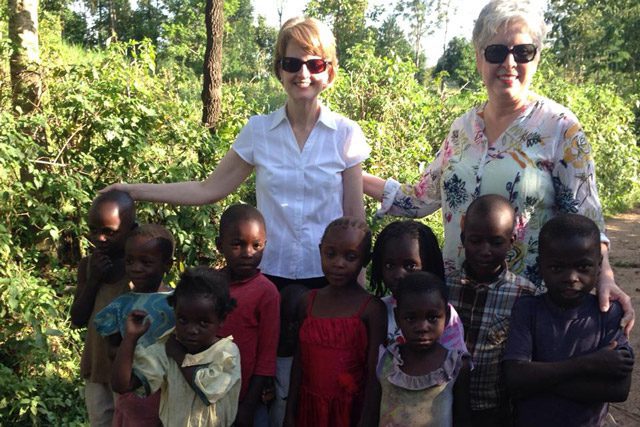The Salvation Army West Kenya Territory’s outreach program expands
[gssgallery ids=”18210,18216,18211,18215,18212,18213,18201,18214″]
In Kenya, when the family unit breaks down, children may see no option but to take to the streets. In West Kenya, they frequently end up in Kakamega, the capital of Kakamega County, where the community often views them as a public nuisance.
With the Kakamega Corps and the West Kenya Territorial Headquarters (THQ) located in the town, The Salvation Army began “Martha’s Closet,” an outreach ministry that through key partnerships now includes an onsite school and access to medical care.
“The number of street children is growing at an alarming pace,” said Commissioner Jolene Hodder, West Kenya territorial president of women’s ministries. “[We] see more and more children who have either been abandoned, fled because of neglect and abuse, or were simply born and brought up in the streets. Their stories are heartbreaking.”
A 2007 study commissioned by the Consortium for Street Children (CSC) revealed that an estimated 250,000 to 300,000 children lived and worked on the streets across Kenya. That estimate may be low, since Kenya Children of Hope noted that girls tend to be “invisible” and not counted in these studies.
According to Hodder, these children are often under the influence of drugs and are at high risk for diseases including HIV/AIDS, malaria and typhoid.
“They are susceptible to trafficking and harmful cultural practices, including female circumcision and forced marriage,” Hodder said. “They have no legal rights…[and] become addicted to a variety of cheap drugs, including leather glue, petrol and diesel fumes, bhang and tobacco.”
The Army’s efforts on behalf of the street children have continuously grown.
Friends and family of Lt. Colonel Martha Jewett—a USA Southern Territory officer who served in Kenya and for whom the program is named—raised money to open “Martha’s Closet” as a retirement gift to her. It provides clothing, medical supplies, snacks and other essential items to the children.
“Martha’s Closet has become so popular with the street boys that the community is now calling them ‘Martha’s Boys,’’’ Hodder said, “They proudly wear a baseball cap that identifies them as part of The Salvation Army.”
Local community leaders took notice.
“I have witnessed the Martha’s Boys being cared for at THQ,” businessman Henry Asava said. “What impressed me most was how they received lunch at THQ daily. My concern was looking for ways to sustain the program. I am also happy with their lively faces in the uniforms provided for them by The Salvation Army.’’
His Excellency Honourable Wycliffe Ambetsa Oparanya, governor of Kakamega County, expressed his appreciation.
“I thank The Salvation Army for the Martha’s Boys and the Survivors rehabilitation program,” he said. “The Survivors” addresses prostitution among girls by teaching alternative ways of making money. “Since the program started, there are good reports from my staff that most of them are changing their perception and behavior.”
Martha’s Boys come to THQ daily, including weekends. On Saturdays, they bathe in makeshift shower stalls using tarps and buckets. On Sundays, the boys come to the Kakamega Central Corps for worship, where Hodder said they are received “with open arms.”
A collaboration with the County Ministry of Education allowed The Salvation Army to open “Martha’s Boys School” on its compound and 60 boys now attend. An area in the corps hall was designated for classes, but the boys said they preferred to meet outside under a tree sandwiched between the pit latrines and a garbage dump.
Vincent Mamewa Munyoni, the Army’s community service worker who runs Martha’s Closet, said his opinion of these children has changed.
“Since I started spending time with them, I realized that these boys are on the street not because they love it or they did something wrong; it’s because of circumstances,” he said. “They need to be respected and to have a chance at a new life no matter how they look or behave. If encouraged about the beauty of life, they are ready to change.”











